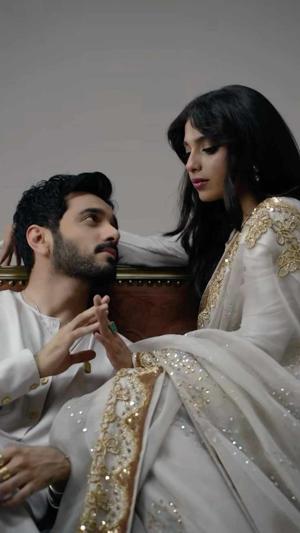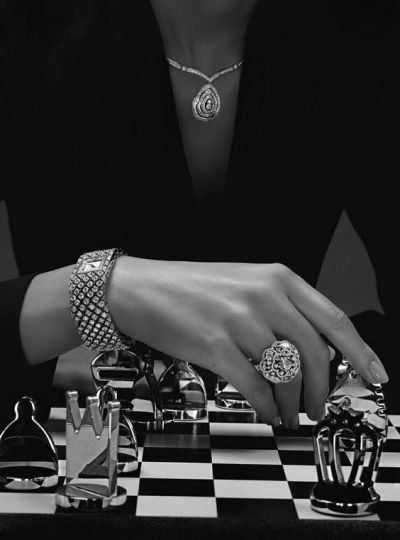The first few days in the hotel room were the darkest of my life. The four walls felt like they were closing in, a physical manifestation of our shame and isolation. We were prisoners of our own choice. We survived on cheap takeout and the dwindling cash Aryan had been able to lend Vivaan. Our phones were a torrent of missed calls and furious, heartbroken messages from our families, which we ignored, too raw to face the onslaught.
Vivaan’s physical pain was a constant reminder of the cost. He moved stiffly, his face pale with the effort of hiding his discomfort from me. But it was the emotional toll that was truly crippling. The guilt was a living thing, gnawing at us both. We had lit the match, and now we were watching everything we’d ever known burn.
On the third morning, I woke up to find Vivaan already awake, sitting at the small desk by the window, staring at his laptop. The pale morning light highlighted the bruises on his face, the shadows under his eyes. He looked exhausted, but his expression was different. The shock had receded, replaced by a grim, focused determination.
“What are you doing?” I asked, my voice raspy from disuse.
He didn’t look up, his fingers tapping on the keyboard. “Looking at our options.”
“Options?” I pushed myself up on the bed. “Vivaan, we have no options. We have no money. My parents have disowned me. Yours have disowned you. I’ve probably been fired from my job for not showing up. We’re…” The word ruined stuck in my throat.
“No,” he said, his voice firm. He finally turned to look at me. “We’re not ruined. We’re starting over. And we’re starting now.”
He turned the laptop screen towards me. It was open to a real estate website, showing listings for small apartments in far-flung, less expensive suburbs of Mumbai.
“What is this?” I asked, confused.
“This,” he said, “is Plan A. We can’t live in a hotel forever. We need a place of our own. A roof over our heads that doesn’t feel like a waiting room for hell.”
“Vivaan, we can’t afford an apartment,” I said, the practicality of our situation crashing down. “You’re a student. I’m… I don’t know what I am anymore.”
A faint, proud smile touched his lips. It was the first smile I’d seen in days, and it was like a crack of sunlight in a stormy sky. “I’m not just a student,” he said. “And I’m not as irresponsible with money as everyone thinks.”
He reached for his wallet, lying on the desk. He pulled out not cash, but a single, platinum credit card. It looked old, well-used.
“When I turned eighteen,” he explained, “my grandfather—my Nana—set up a trust fund for me. He was the only one who ever thought I had a head for business. He said it was ‘seed money.’ My parents never liked it; they thought it would make me more reckless. They were the custodians until I turned twenty-one. I turned twenty-one three months ago.”
My eyes widened. “A trust fund? How much?”
“Enough,” he said, his eyes holding mine. “Enough for a down payment on a small flat. Enough to get us started. It’s not Raichand money. It’s not my father’s money. It’s mine. My Nana’s belief in me. And I can’t think of a better way to use it than to build a home for us.”
Tears welled in my eyes. In the midst of the devastation, he had found a way. A lifeline. It wasn’t about the money; it was about the symbolism. He was using his inheritance, his independence, to build our future. It was the first act of our new life together.
“Are you sure?” I whispered.
“I’ve never been more sure of anything,” he said. He got up, wincing slightly, and came to sit beside me on the bed, taking my hands in his. “This isn’t how I imagined our beginning, Ananya. I wanted to give you palaces. But all I can give you right now is a one-bedroom flat in a building with no lift. But it will be ours. And I will fill it with so much love that you’ll forget all about the crystal chandeliers.”
I laughed through my tears, a real, genuine laugh that felt foreign and wonderful. “I don’t want a palace. I just want you.”
The search began that day. It became our mission, our distraction from the grief. We used the hotel’s shaky Wi-Fi to scour listings. We took rickety local trains to the ends of the city lines, Vivaan stubbornly ignoring his pain. We viewed tiny apartments with peeling paint and questionable plumbing, but we saw them not for what they were, but for what they could be.
We bickered over the size of the kitchen. He wanted a balcony; I wanted a window that got good light. It was normal. It was couples’ stuff. And in those moments, we could almost pretend we were just two young people in love, looking for their first home, and not two exiles building a fortress against the world.
Finally, we found it. A small, 400-square-foot flat on the third floor of a modest, clean building in a quiet neighborhood. It had a main room that could be a living and bedroom, a tiny kitchen, a bathroom, and a small balcony that overlooked a line of Gulmohar trees. The walls were a blank, off-white canvas. The floor was bare concrete. It was perfect.
Vivaan negotiated the price with a shrewdness that surprised me and made the broker’s eyes widen. He transferred the down payment from his account, his jaw set with a determination I’d never seen before. This was his project. His statement.
The day we got the keys, we stood in the empty flat, the echo of our footsteps the only sound. The air was thick with dust and possibility.
Vivaan turned to me, a genuine, unburdened smile on his face for the first time since the accident. He held up the key. “Welcome home,” he said.
Tears streamed down my face. It wasn’t a home yet. It was four walls and a roof. There were no beds, no fridge, no chairs. We had a single suitcase of clothes between us and a trust fund that was now significantly smaller.
But he was right. It was ours.
We spent our first night there, camping on the floor with a mattress Aryan had helped us haul up the stairs. We ate takeout pizza sitting cross-legged on the concrete, and we talked for hours, our voices echoing in the empty space. We talked about painting the walls a warm yellow. We talked about a small bookshelf for my physics textbooks. We talked about a future that was no longer a fantasy but a blank page we were going to fill together, one difficult, beautiful day at a time.
It was small. It was humble. It was a million miles from the life we’d known. But as I lay on that thin mattress that night, listening to Vivaan’s steady breathing beside me, I felt something I hadn’t felt in weeks: a flicker of hope. We had laid the first brick. The foundation was poured. Our life together had officially begun.





Write a comment ...